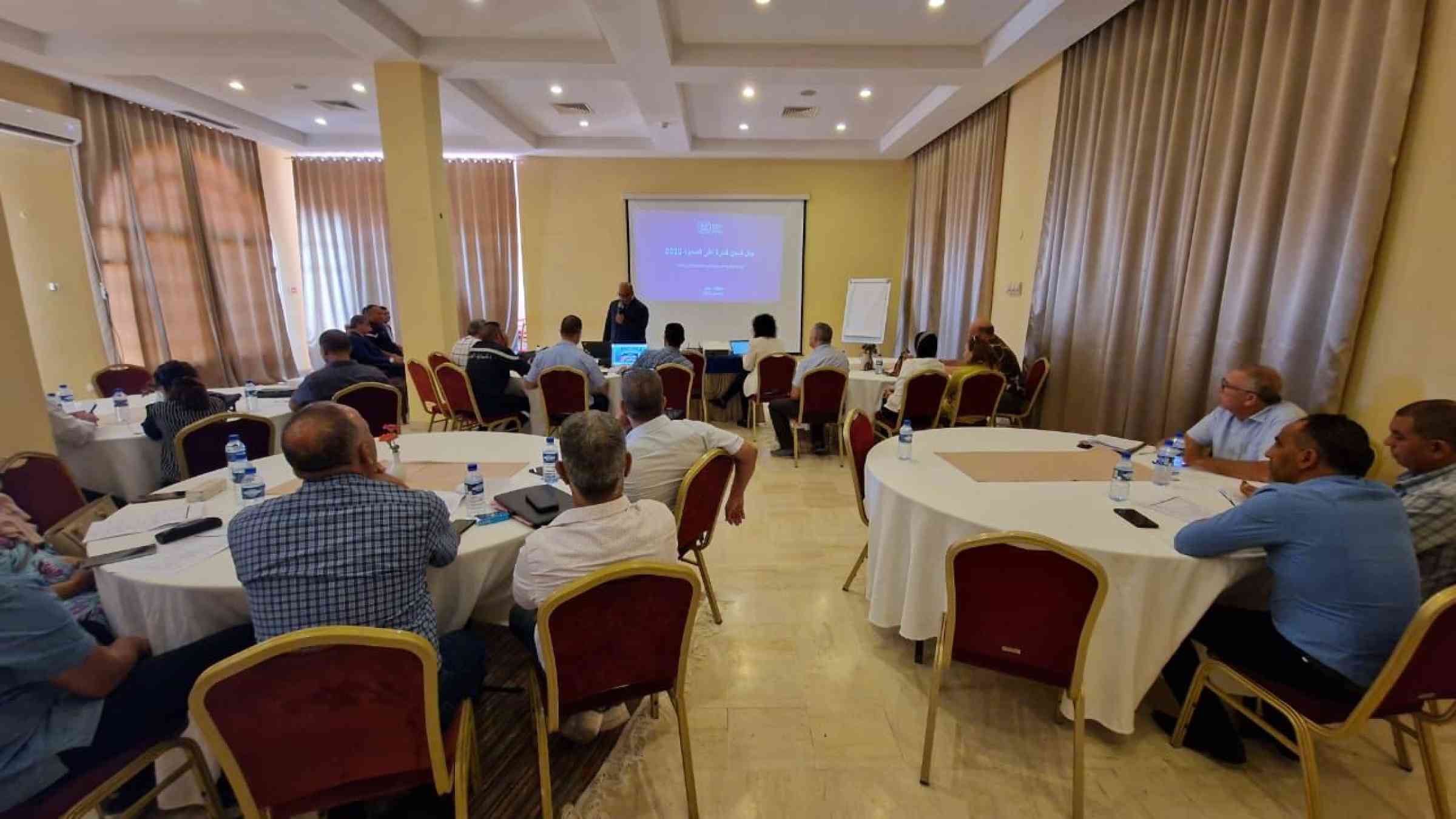Building resilience in Tunisia: MCR2030 workshop yields promising results

Local governments take strides toward wildfire resilience
1 September 2023, In July 2023, the city of Tabarka in Tunisia's Jendouba Governorate faced a massive wildfire amid soaring temperatures forcing hundreds to evacuate their homes and underscoring the urgent need for disaster risk reduction. UNDRR, a lead partner for the Making Cities Resilient 2030 (MCR2030) cross-stakeholder initiative for improving local resilience, stepped in to support local governments in the Jendouba region, which is susceptible to wildfire hazards.
In a recent mission to Tunisia, the UNDRR Regional Office for Arab States delved into community strength and launched the MCR2030 workshop on the implementation of the Wildfire Disaster Risk Reduction scorecard, a tool designed to help communities improve their ability to assess the risk from, prepare for, manage, and recover from wildfires.
The workshop, which was conducted in coordination with the Ministry of Environment and the Municipality of Tabarka, came to pilot a Local Resilience Action Plan using the UNDRR Wildfire Disaster Risk Reduction Scorecard. It equipped attendees with approaches and tools for resilience-building, emphasizing multi-stakeholder engagement. These included the Ten Essentials for Making Cities Resilient and the Disaster Resilience Scorecard for Cities, as well as other tools for disaster risk reduction strategic planning. Moreover, the workshop encouraged knowledge-sharing and collaboration among participating cities.

30 participants from Tabarka and Ain Drahem municipalities representing various disciplines actively engaged in the training workshop, addressing best practices, lessons learned, and scientific approaches to reducing wildfire risks. Notably, the inclusion of representatives from the neighboring city Ain Drahem brought a unique dimension to the event. Their insights provided invaluable knowledge on the efficiency of the early warning system in their area, offering participants a deep understanding of its inception, operation, and remarkable track record in mitigating disaster-related casualties and losses. Additionally, the City Climate Finance Gap Fund showcased the possible funding opportunities that the municipality can access.
It empowered multi-disciplinary individuals responsible for disaster risk management and urban development policy with a scientific approach, providing them access to essential knowledge and tools and fostering a culture of experience sharing and collaboration.
The workshop in Tunisia yielded promising results and outcomes that highlight its significance. The participants are in the process of developing a preliminary local resilience action plan, drawing on the UNDRR Wildfire Disaster Risk Reduction Scorecard. This plan will represent a crucial step towards enhancing the city's preparedness and response to wildfires.
The MCR2030 workshop in Tunisia underscores the critical role that local governments play in building resilience against disasters and climate-related challenges. As climate variability and rising temperatures threaten Tunisia's economic sectors, particularly agriculture and tourism, it is essential to take proactive measures.
UNDRR's MCR2030 initiative provides cities with the knowledge, tools, and networks they need to tackle these challenges head-on. By integrating resilience into their urban development plans, cities can protect their communities, preserve hard-earned development gains, and work towards inclusive, safe, resilient, and sustainable futures. The Wildfire Disaster Risk Reduction scorecard is modeled on the UNDRR Disaster Resilience Scorecard for Cities and embodies the Ten Essentials of Making Cities Resilient. The Wildfire Scorecard is developed by ARISE-US and CrowdDoing and is issued with a spreadsheet to help with capturing scores.